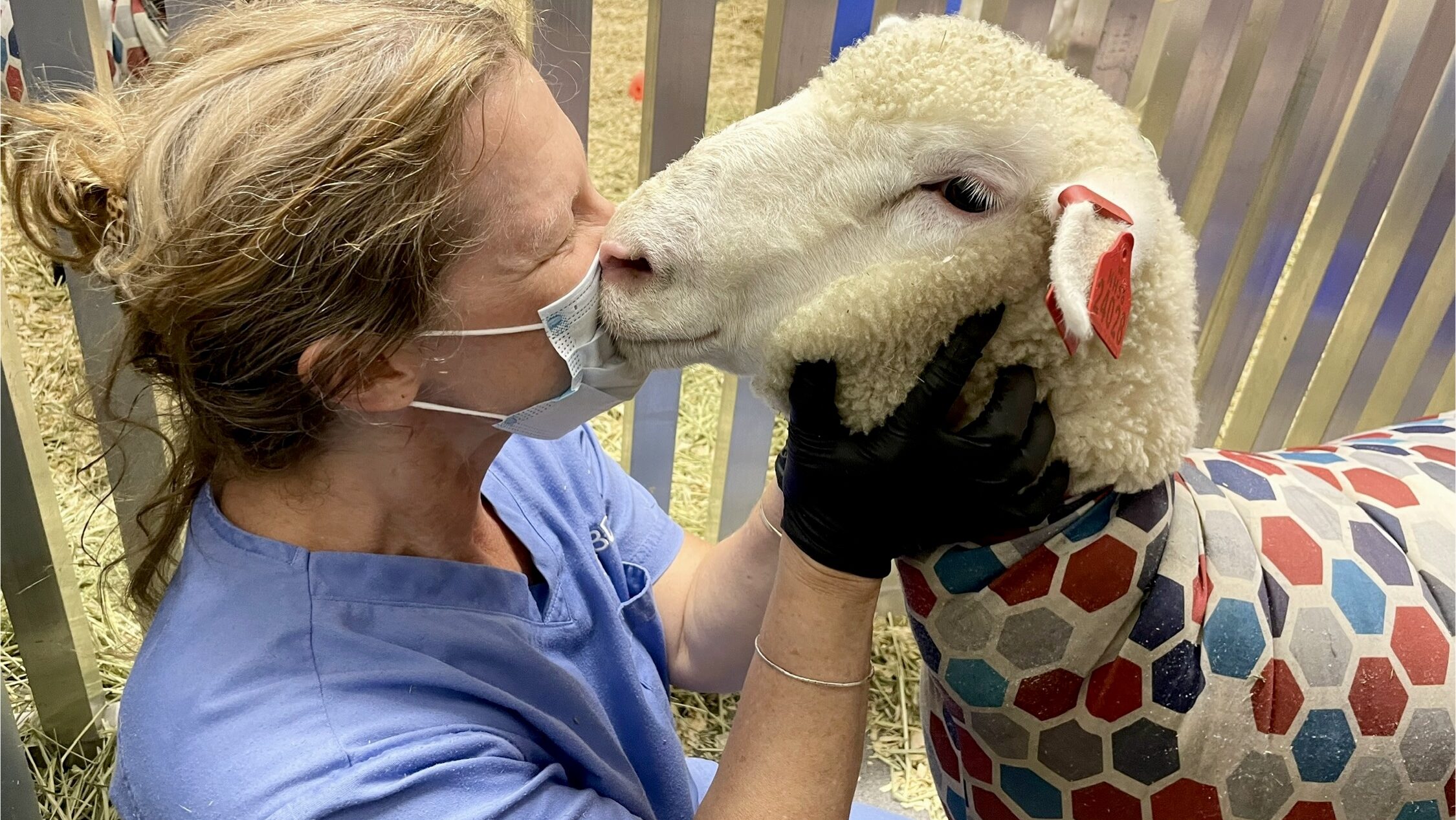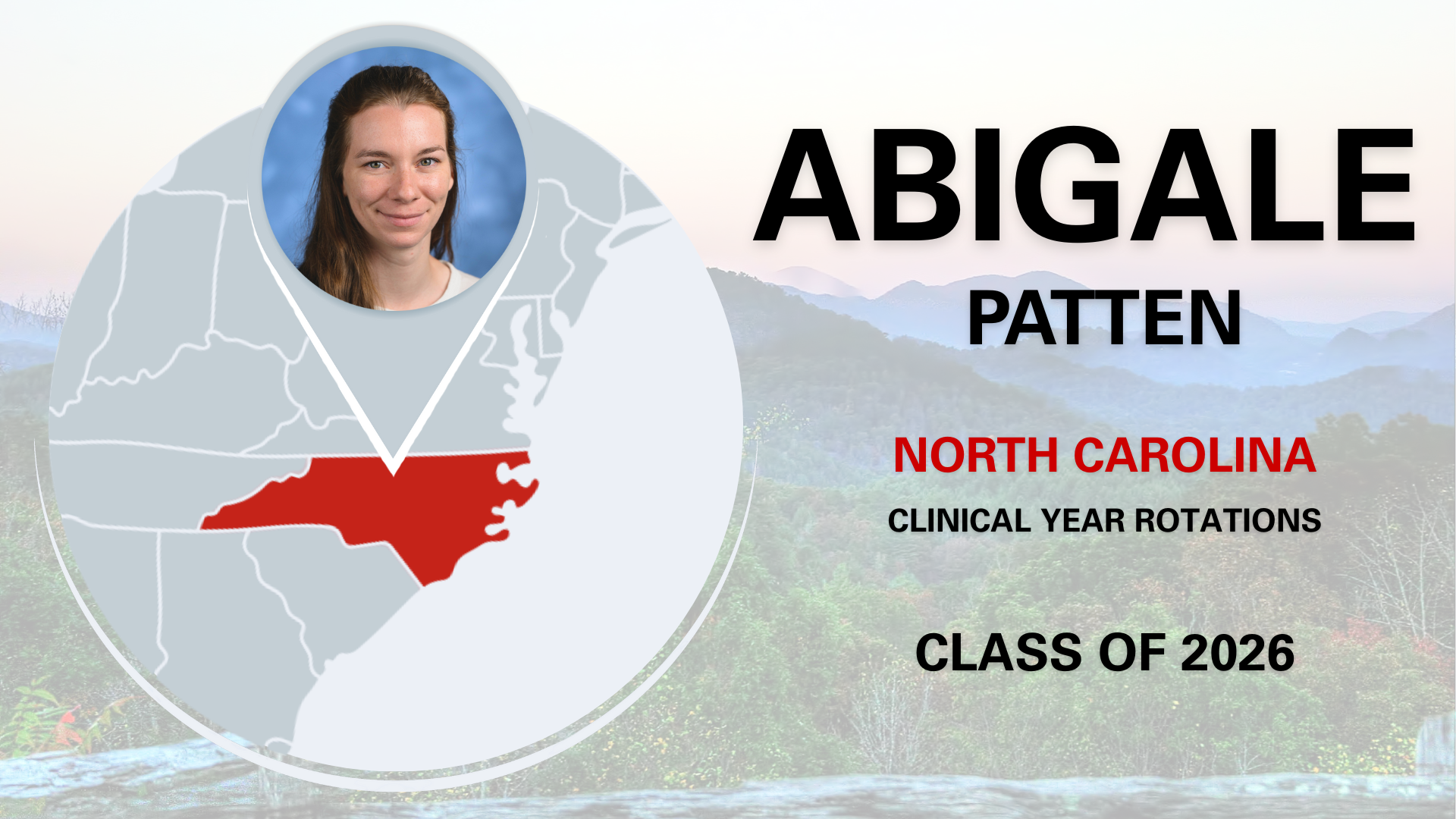Alum from Class of 2007 Wins Prestigious Award for Outstanding Laboratory Animal Care
The award given to Dr. Coralie Zegre Cannon recognizes outstanding accomplishment in the improvement of care, quality and environment of animals used in biological and medical research.

Dr. Coralie Zegre Cannon, who received her DVM from the NC State College of Veterinary Medicine in 2007, won the prestigious Charles A. Griffin Award from the American Association for Laboratory Animal Science (AALAS).
The award recognizes outstanding accomplishment in the improvement of care and environment of animals used in biological and medical research.
Cannon, who had a previous career in research and development at Procter & Gamble, pursued veterinary medicine to become a laboratory animal veterinarian. She completed a residency in laboratory animal medicine at the National Institute of Environmental Health Sciences in Research Triangle Park and became board-certified by the American College of Laboratory Animal Medicine in 2011. She currently is corporate director of veterinary medicine and Attending Veterinarian at Becton Dickinson, a global medical device company.
We talked with Dr. Cannon about her journey to becoming a veterinarian who cares for laboratory animals, her career so far and her advice for veterinary students. Here is an edited transcript.
Q: Congratulations on your award!
Dr. Coralie Zegre Cannon: Thank you. The veterinary college holds a very special place in my heart. Going back to veterinary school was my second career. I was always interested in becoming a veterinarian or human physician but first pursued working in R&D to help to pay off my undergraduate loans and build the confidence to pursue graduate school. I majored in zoology at Miami University of Ohio. I have always been interested in veterinary and human medicine. During my first career in R&D, I learned there were veterinarians who took care of laboratory animals. They were the voices to ensure animal welfare and care supported good science, and that really spoke to me.
Q: What were you doing in research and development?
Cannon: I was a research associate for the Procter & Gamble Company in Cincinnati, Ohio. I traveled all over the world to learn about consumer needs in newborn baby care and took back those learnings to create prototypes. Newborn infants respond well to being swaddled as a way to help decrease stress and drive comfort. A lot of my work with laboratory animals now is in refinements of humane handling and how to make them most comfortable in their environment. I was with P&G five years before I went back to veterinary school.
Q: Did you go to veterinary school planning to care for laboratory animals?
Cannon: Yes, I pursued veterinary school to become a laboratory animal veterinarian and to advocate for animal care and welfare for animals that were helping to improve human medicine. The laboratory patient models directly contribute to improving human medicine and veterinary medicine.
What I love to say is I’m a laboratory animal veterinarian who takes care of large and small patient models. In my industry, we call them research animal heroes.
Q: How did you come to win this award?
Cannon: I was nominated for this award based on my contributions to continuous improvement of animal care of laboratory animals, the quality of their living environment, their focus on lab animals as patient models, as individual patients that are here contributing to improving medicine. I sit on the 3Rs Collaborative alongside my amazing colleagues in our profession. The 3Rs refers to reduction, refinement and replacement of animals in support of good science. I developed the 4th R to acknowledge rehoming/retirement of laboratory animals when approved by the institutional policy on adoption. I have developed procedures and led rehoming of laboratory animals under the approved IACUC policy.
The second reason I was nominated is for the continuous improvement initiatives for social housing of animals and the behavioral management of laboratory animals, for promoting patient caretaker bonds and promoting compassion satisfaction in the lab animal environment by promoting caretaker-patient bonds. Promoting patient-caretaker bond is equally as important as the procedures we do. I have a continuous improvement mindset and developed a voluntary program called sheep cuddlers. Sheep are a prey species and are comfortable being among their herd. We have volunteers within the team stay with sheep during procedures so they’re not alone or stressed. The Charles Griffin award really affirms support for the culture of care I strive for in the field of laboratory animal medicine.
Q: If you were going to give advice to current vet students about this career path, what would you tell them?
Cannon: I think first and foremost is to do what is right each and every time and to really follow your passion in veterinary medicine. I recommend to always network, always ask questions and seek out better ways to do something. As a laboratory animal veterinarian, I learned how important developing clinical experience and acumen is to apply to laboratory animal care and IACUC protocol review and to support biomedical research. I encourage students to continue to seek as much clinical experience as they can during veterinary school to understand what normal looks like, feels like, and acts like. My veterinary school adviser, the late Dr. Rick Fish, encouraged me to build clinical experience and to keep a foot in practice whenever possible. I encourage veterinary students to follow their passion and to build evidence-based medical experiences. Do not let the words ‘we’ve always done it that way’ stop you from making change.
It’s really a privilege to be able to contribute to life-saving science. As the attending veterinarian, I have the authority to ensure laboratory animals receive gold standard animal care and welfare. It’s a privilege to be a voice for lab animals and to push to always do better. I love to tell veterinary students this: The laboratory animal profession is a community of professionals and specialists who really love and care about animals so it’s quite a dynamic, continuous improvement mindset. Our field is very much, ‘How can we do better?’ It’s never, ‘But we’ve always done it this way.’ It’s so energizing.
Q: You said you’re an adjunct professor at the NC State College of Veterinary Medicine?
Cannon: I lecture on career opportunities in laboratory animal medicine to help expose first year students to different careers. I also lecture on behavior of laboratory animals. My team at BD has also helped to develop an externship program for veterinary students and residents in laboratory animal medicine. We give them the opportunity to spend a week with us to learn about best practices for animal welfare and care of laboratory animals working with a variety of patient models.
Q: What else would you like to mention?
Cannon: Good communication and building a professional network at NCSU-CVM are invaluable. Do not be afraid to ask for help.
It is a privilege to be a laboratory animal veterinarian and be the voice for patient models who are contributing to improving human and veterinary medicine. I love animals and am surrounded by laboratory animal colleagues who love them, too. We really care.
It has been an honor to be the recipient of the AALAS Charles Griffin award. It is the oldest and most elite award given by AALAS. I want to thank NC State CVM faculty, staff, my mentors, my best in the industry animal care teams and colleagues and most of all the special laboratory animal heroes under my care that helped me to achieve this outstanding award.
- Categories:


